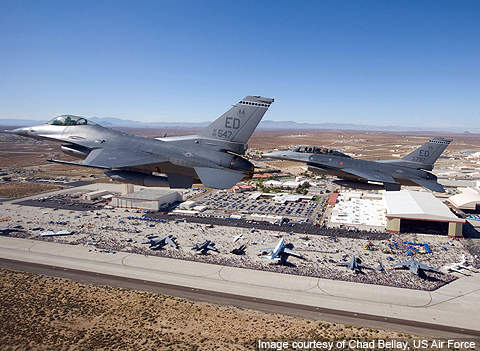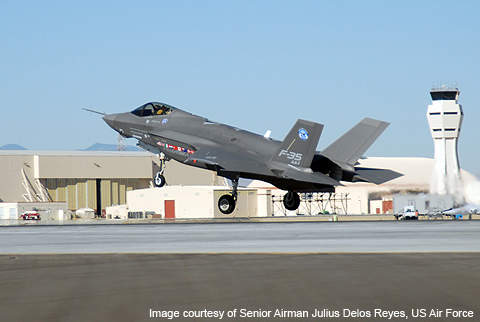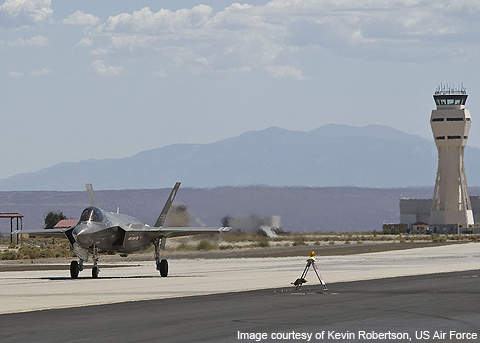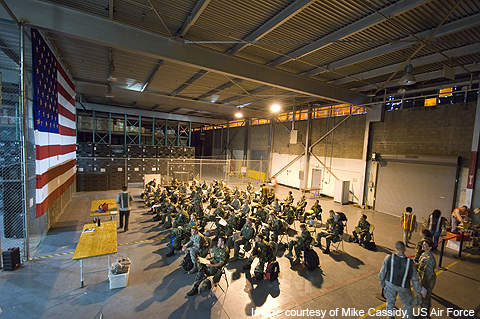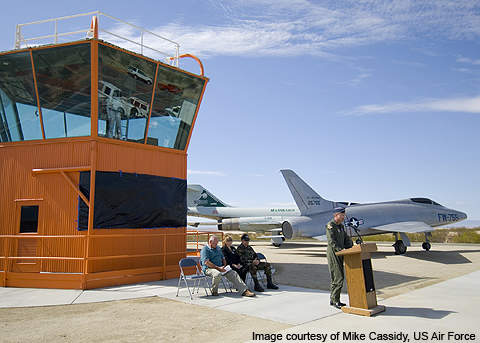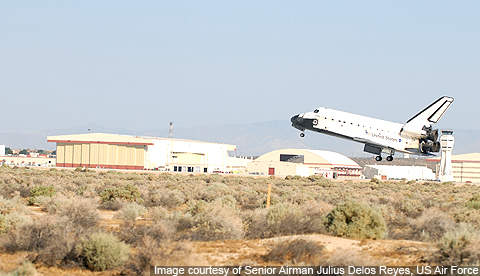Edward Air Force Base (EAFB) is situated 11km south-west of North Edwards, California in the US. Built on a 301,000-acre (470-square-mile) site, it is the second-largest air force base in the US and features the longest runway in the country. The base was opened in 1933. Most of the land at the base is undeveloped or semi-improved and is primarily used for flight testing.
EAFB is constructed beside the Rogers and Rosamond dry lakebeds in the Mojave Desert. The two lakebeds are located about 100 miles north-east of Los Angeles. Rogers is a longer lakebed than Rosamond, and has a broad surface area of toughened clay that is used for emergency landings. It covers an area of about 44 square miles.
Rosamond covers 21 square miles. It is located south-west of Rogers and features smooth flat surface area principally used for routine flight test, research operations and emergency landings. The rough surface of the dry lakebeds allowed the base to extend its runways and serve as the best location for emergency flight landings during bad weather conditions.
The base comprises 291 houses. The housing office manages 58 units for officers and 16 for SNCO. Each house covers an area of about 500ft². The base derives 60% of its electricity from renewable sources. Every military aircraft in the US is partially tested at the EAFB.
Edward Air Force Base history
The Muroc Lake bombing and gunnery range was built in September 1933 by March field Lieutenant Arnold as a training site for fighters and bombers. Later it was renamed an Army Air Base Muroc Lake in July 1942. It was then redesignated as the Muroc Army Airfield in November 1943. The Muroc Army Airfield was finally renamed Edwards Air Force Base on 8 December 1949.
The base is named after YB-49 Flying Wing martyr Glen Edwards. He died along with five crew members in June 1948.
Design and construction
The base has been renovated to endorse $20m joint strike fighter’s (JSF) phase I system development and demonstration (SDD) programme. The renovation project was awarded to MILCON. It included overhauling infrastructure, offices, hangar and work areas. The work on the project also encompassed construction of new munitions maintenance facility and warehouse.
In February 2006, a $243,343 contract was awarded to Armtec Countermeasures by the USAF for rendering communication, detection and coherent radiation equipment. As of March 2010, about 291 houses were constructed by the USAF as part of the five-year $100m project.
EAFB garrison facilities
The base serves as headquarters for the Air Force Flight Test Center (AFFTC), 412th Test Wing and 95th Air Base Wing. It is also home to Nasa-Dryden Flight Research Center, US Marine Corps reserve units, and Air Force Research Laboratory (AFRL).
The 412th test wing plans and probes flight and ground testing of aircraft’s armament systems, software and components.
It also offers training on conducting flight tests to pilots, navigators, and weapon system officers. The wing also provides tools, components, avionics, propulsion and electronic warfare evaluation technologies required during the flight test.
The 95th air base wing provides communication, fire protection, security, transportation, finance and contracting. It also offers legal services and manpower support, housing and education.
The AFFTC boasts of a variety of historical aircraft, armaments, prototypes and engines. It is suitable for research and development, test and evaluation of systems equipped in the aircraft.
Air facilities
The base has 19 runways, of which, three are paved and the remaining 16 are located on the lakebed. The length of the longest paved runway is 15,000ft. Its width and depth are 300ft and 3ft respectively. The second paved runway is 12,000ft long, while the third is 8,000ft long. All the three paved runways are concrete surfaced. Two of the 16 unpaved runways are located on the Rosamond lakebed. Both runways are 6.4km long.
Control tower
The base comprises a control tower, a TRACON (terminal radar approach control) and radar control facility in the main airfield.

